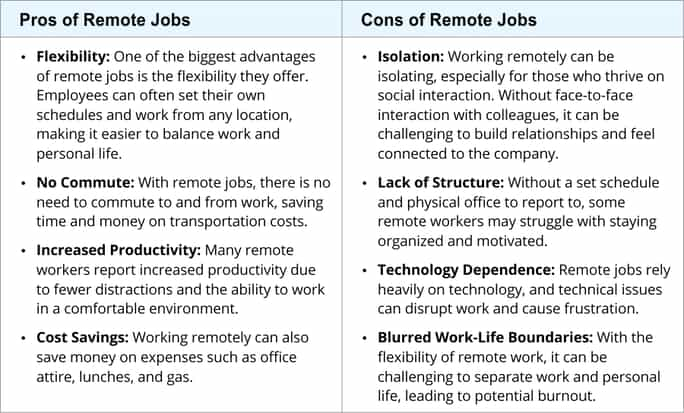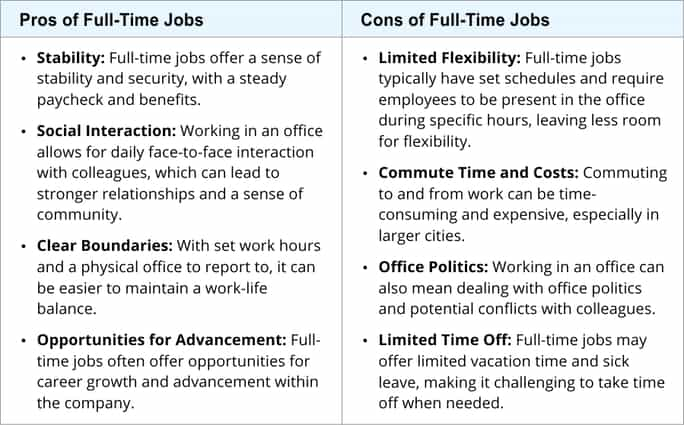In today's job market, there are more options than ever before when it comes to employment. One of the biggest debates is between flexible work arrangement jobs and full-time jobs. Both have their advantages and disadvantages, and it can be challenging to determine which is the best fit for you. In this article, we'll explore the differences between flexible work arrangement jobs and full-time jobs and help you decide which is the right choice for your career.
What Are Flexible Work Arrangement Jobs and Full-Time Jobs?
Before we dive into the comparison, let's define what we mean by flexible work arrangement jobs and full-time jobs.
Flexible Work Arrangement Jobs
Flexible Work Arrangement jobs, also known as telecommuting or flexible work arrangement jobs, are positions that allow employees to work other than a traditional office. This can include flexible work arrangement, a co-working space, or even while traveling. Flexible Work Arrangement jobs typically require a computer and internet connection, and communication is often done through email, phone, or video conferencing.
Full-Time Jobs
Full-time jobs, also known as 9-5 jobs, are traditional positions where employees work a set schedule in a physical office location. These jobs typically require employees to be present in the office during specific hours and may involve commuting to and from work. Full-time jobs often offer benefits such as health insurance, retirement plans, and paid time off.
Pros and Cons of Flexible Work Arrangement Jobs

Pros and Cons of Full-Time Jobs

Which Is the Right Choice for You?
When deciding between flexible work arrangement jobs and full-time jobs, it's essential to consider your personal preferences, work style, and career goals. Here are some factors to consider when making your decision.
Work-Life Balance
If work-life balance is a top priority for you, a flexible work arrangement job may be the better choice. With the flexibility to set your own schedule and work, it can be easier to balance work and personal life. However, if you prefer a clear separation between work and personal life, a full-time job may be a better fit.
Social Interaction
If you thrive on social interaction and enjoy working in a team environment, a full-time job may be the better choice. Working in an office allows for daily face-to-face interaction with colleagues, which can lead to stronger relationships and a sense of community. However, if you prefer to work independently and value quiet, uninterrupted work time, a flexible work arrangement job may be a better fit.
Career Growth
If career growth and advancement are essential to you, a full-time job may be the better choice. Full-time jobs often offer opportunities for promotion and career development within the company. However, if you prefer to have more control over your career path and are comfortable with a less traditional work structure, a flexible work arrangement job may be a better fit.
Personal Preferences
Ultimately, the right choice between flexible work arrangement jobs and full-time jobs will depend on your personal preferences. Consider factors such as your work style, preferred work environment, and career goals when making your decision.
Takeaways
Both flexible work arrangement jobs and full-time jobs have their advantages and disadvantages, and the right choice will depend on your personal preferences and career goals. Flexible Work Arrangement jobs offer flexibility and cost savings, while full-time jobs offer stability and opportunities for career growth. Consider your priorities and work style when deciding which is the best fit for you.

